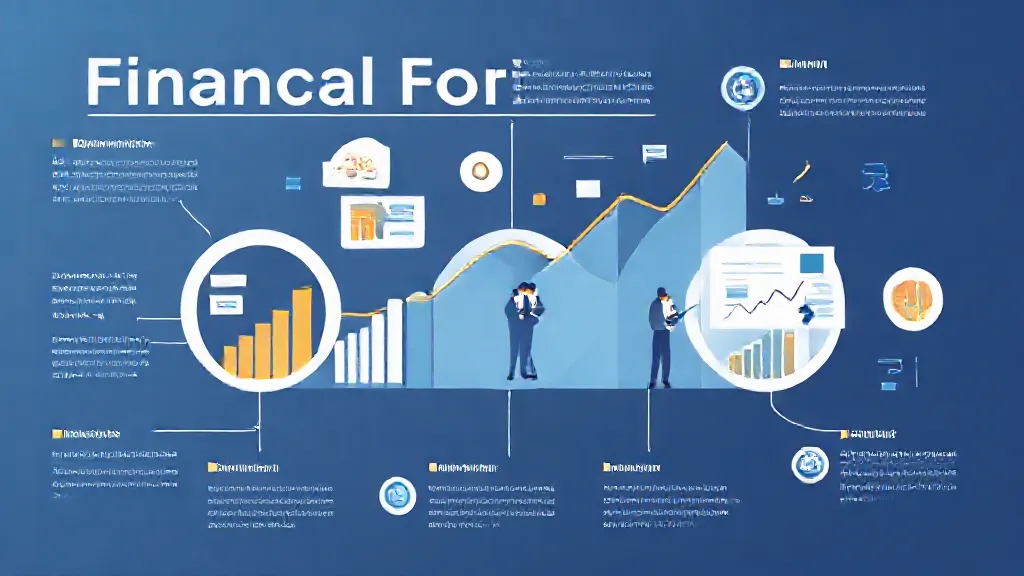Financial forecasting is a crucial aspect of business strategy that involves predicting future financial outcomes based on historical data, market analysis, and economic trends. The ability to anticipate future financial conditions allows organizations to make informed decisions, allocate resources efficiently, and set realistic goals. In a world that is constantly changing, financial forecasting provides a roadmap that helps businesses navigate uncertainties and seize opportunities.
The Role of Financial Forecasting in Strategic Planning
Strategic planning is the process by which an organization defines its direction and makes decisions on allocating its resources to pursue this strategy. Financial forecasting plays a pivotal role in this process by providing a quantitative basis for strategic decisions. For instance, a company may use financial forecasts to determine whether to invest in new product development, expand into new markets, or cut costs in certain areas.
By examining projected revenues and expenses, businesses can assess the potential return on investment and make choices that align with their long-term objectives.
Enhancing Budgeting Processes through Forecasting
Budgeting is another area where financial forecasting proves essential. A well-prepared budget is based on reliable financial projections.
By analyzing past performance and current market conditions, organizations can create more accurate budgets that reflect realistic revenue expectations and expense management. For example, a retail company might forecast sales for the upcoming holiday season based on historical sales data, allowing them to allocate inventory and staffing resources accordingly. This proactive approach minimizes waste and maximizes profitability.
Risk Management and Financial Forecasting
Effective risk management is vital for the sustainability of any business. Financial forecasting aids in identifying potential risks by projecting various financial scenarios. For example, during economic downturns, businesses can use forecasting models to predict cash flow shortages and take preemptive measures to mitigate financial strain.
This could involve securing lines of credit, adjusting operational costs, or diversifying revenue streams. By preparing for potential challenges, companies can enhance their resilience and maintain stability in turbulent times.
The Impact of Technological Advancements on Forecasting
Recent advancements in technology have transformed the way businesses approach financial forecasting.
Tools such as artificial intelligence and machine learning enable organizations to analyze vast amounts of data quickly and accurately. These technologies can identify trends and patterns that may not be immediately apparent, leading to more precise forecasts. For example, predictive analytics can help companies anticipate customer behavior, allowing them to tailor their marketing strategies effectively.
As technology continues to evolve, businesses that leverage these tools will gain a competitive edge in their financial planning efforts.
The Importance of Continuous Monitoring and Adjustment
Financial forecasting is not a one-time activity; it requires continuous monitoring and adjustment. As market conditions change, businesses must revisit their forecasts to ensure they remain relevant.
This iterative process involves comparing actual financial performance against projected figures, analyzing discrepancies, and adjusting future forecasts accordingly. For instance, if a company experiences unexpected growth due to a new product launch, it may need to revise its forecasts to reflect increased demand and adjust its operations to meet this new reality.
The Role of Stakeholders in Financial Forecasting
Stakeholders, including investors, employees, and customers, play a significant role in the financial forecasting process.
Investors rely on accurate forecasts to make informed decisions about their investments, while employees may look to forecasts to understand the company's financial health and job security. Customers, too, can be influenced by a company's financial stability, impacting their purchasing decisions. Therefore, transparent and accurate financial forecasting is essential for maintaining stakeholder trust and confidence.
Case Studies Highlighting the Importance of Financial Forecasting
Numerous case studies illustrate the critical role of financial forecasting in business success. For instance, during the 2008 financial crisis, companies that had robust forecasting models were better equipped to navigate the downturn. They were able to make swift adjustments to their operations and financial strategies, ultimately emerging stronger than competitors who lacked foresight.
Similarly, organizations like Amazon have utilized sophisticated forecasting techniques to predict demand and optimize inventory management, contributing to their rapid growth and market dominance.
Conclusion: The Future of Financial Forecasting
As businesses face an increasingly complex and dynamic environment, the importance of financial forecasting will only continue to grow. Organizations that prioritize accurate forecasting will be better positioned to navigate uncertainties, capitalize on opportunities, and achieve sustainable growth.
By investing in advanced forecasting tools and methodologies, businesses can enhance their decision-making processes and secure their future in an ever-evolving marketplace.
